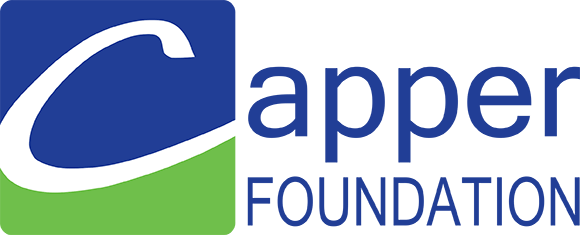Our Mission & History
The following is a brief historical timeline of our over 100-year-old organization. Senator Arthur Capper's legacy of helping individuals with disabilities is indeed living on.
1920 - The Capper Fund was established by Arthur Capper - United States Senator, former Kansas Governor, publisher, philanthropist, and a devoted advocate of children with special needs.
1934 - Conversion of the informal Capper Fund to The Capper Foundation for Crippled Children, a non-profit Kansas Corporation.
1947 - The Capper Foundation for Crippled Children becomes the area's first comprehensive rehabilitation facility with the donation of property from the closing of the Topeka Orphan's Home.
1951 - Arthur Capper dies and leaves assets to purchase the Topeka campus at 3500 SW 10th Avenue.
1959 - New facilities were built to expand programs and therapy services. Academic classrooms for USD 501 kindergarten through high school ages were provided as a special purpose school.
1961 - Residential facilities are added.
1970 - Adult work center established.
1971 - Infant Programs added to include early intervention services.
1985 - Gift of warm water therapy pool.
1986 - Outreach Program established.
1993 - Children’s residential program closed / Assistive Technology program grows / Professional & Family Training program formalized.
1995 - Corporate name changed to The Capper Foundation, retaining non-profit status.
1996 - Academic classrooms transitioned back into USD 501 schools / John K. Knoll Mobility Bank established to loan durable medical equipment / Three-year “Building Abilities” Capital Campaign begins.
1997 - Center for Assistive Technology in Kansas City, Missouri acquired from United Cerebral Palsy.
1999 - Capital Campaign success celebrated. Major renovation and expansion of the facility.
2005 - Affiliation partnership with the national organization, Easter Seals, yet remains a separate Kansas Corporation. The name changed to Capper Foundation Easter Seals, adding service territory of 101 of the 105 counties in Kansas.
2008 - Changed name to Easter Seals Capper Foundation.
2010 - Easter Seals Capper Foundation celebrated 90 Years of Building Abilities.
2012 - Individual Support Systems, Inc. of Topeka merged with ESCF, expanding adult services.
2014 - Creative Community Living of South Central Kansas merged with ESCF, expanding geographic reach and adult services.
2016 - Celebrated 95 years of Building Abilities with a birthday party on July 14th to honor Arthur Capper on his 151st birthday. On the same day, Arthur Capper was honored with a downtown statue dedication in the 700 block of Kansas Avenue. Adopted the national Easterseals marketing brand, changing the name to Easterseals Capper Foundation, yet maintaining its own governing Board of Trustees and remaining a Kansas corporation, separate from the national organization. Independent with self-guided strategic plan, solely responsible for operating funding and operating budget.
2018 - Transitioned Behavior Services to a “consulting” model to serve more children with behavior and autism needs.
2019 - Returned to Capper Foundation, Inc., our corporately registered name. Rebranded organization to reflect the health and growth of the organization in serving all counties in Kansas.
2020 - Capper Foundation celebrated 100 years of service to families across Kansas. New teletherapy service models for pediatric therapies were introduced for the continuation of services during the COVID-19 pandemic.
2021 - Capper Foundation received the 2021 Non-Profit of Distinction Award from the Greater Topeka Partnership. Quality individualized care and services continued to be provided amidst the ongoing COVID-19 pandemic.
2022 - Jim Leiker, long-time President & CEO retired, and Zach Ahrens joined the Capper Team as President & CEO.
2023 - Dialogue Coffee House joined with Capper Foundation to support more individuals in the community with career training and opportunities to be valued, enjoy access and independence to advance their hopes and dreams. Two new locations were added increasing the number of adults employed with disabilities.
2023 - Capper Foundation, sponsored by Kiwanis Club of Topeka, started a local chapter of Aktion Club, a service club for adults with disabilities. An extension of Kiwanis International, Aktion Club includes more than 11,000 members worldwide (currently there are five active clubs in Kansas).
2024 - A fourth Dialogue Coffee House location was added, increasing employment opportunities to over 50 individuals with disabilities. The Dialogue commercial/training kitchen was expanded to 1,000 square feet to simultaneously accommodate a food production and job training environment.
